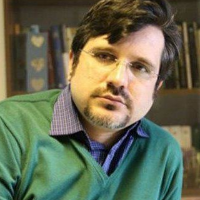Opportunities and challenges of Good Metropolitan Governance in the Globalization Era
Author(s):
Abstract:
Globalization refers to the increasingly global relationships of culture, people and economic activity. The aspects of globalization can be classified in four dimensions: social and cultural globalization, economic globalization on, political globalization and globalization of law. A review of recent urban and regional studies shows that these studies has affected from globalization literature in past three decades after the universal use of global/world city term. At this situation, world-wide urbanization and emergence of city-regions and other types of urban settlements- like metropolis, megalopolis, mega cities, etc.- has formed new types of governance frameworks for city-regions that has been called metropolitan governance. The review of metropolitan governance models show the diversity and variety of these models. This paper classifies the effects of globalization on metropolitan governance in four aspects: 1-emergence of new local and global actors and new types of political participation, 2-evoloution in urban governance in the shadows of urban competitiveness, 3-increasing importance of restructuring and rescaling in territorial governance and 4- importance of sustainable development with a focus on urban livability and spatial justice. According to this, present paper suggests a framework for good metropolitan governance in the globalization era. The Basis of this framework has found on four principles: 1-to increase urban competitiveness, 2-to play an active and effective role in city diplomacy and global governance, 3-to enhance livability and spatial justice level and 4-integrated and good governance. This paper focuses on restrictions and limitations that Tehran faces in globalization era. The paper also describes the crucial challenges of Tehran Metropolitan Region arrangements for governance (political and functional fragmentation) and attempts that have carried out for coping with those challenges.It shows that Tehran with a population of about 12 million is one of important capitals in the Middle East and has a dominant role in national transactions but it has recognized as a non-global city. Different studies confirm this too. With the criteria of GAWC Research group Tehran has minimal evidence of world city formation but it is not a global city. Also Tehran has classified as a member of "black holes" and it in the typology of non-global cities as a "resisting city". Also some studies show that Tehran has not started globalization process and as the process develops, Tehran more and more stays behind it. Finally the paper focuses on opportunities and challenges of good metropolitan governance in Tehran in the globalization era. The paper shows that because of the resistance and unwillingness of Iran central government to play a more active role in the global domain, policy making to achieve a better situation for Tehran in the global system has been ignored for years. This paper describes that even non-global cities need a clear and integratedurban governance strategy to play a more effective role in global era to maximize the positive effects and minimize the negative impacts of globalization. Because of this, the papers offer that Tehran should follow the suggested framework for good metropolitan governance.
Language:
Persian
Published:
HOnar - ha - ye - ziba Memari - va - shahrsazi, Volume:17 Issue: 1, 2012
Page:
5
https://magiran.com/p1106135
مقالات دیگری از این نویسنده (گان)
-
Analysis of factors influencing urban nightlife using cross-impact analysis method; Case study of District 8 of Shiraz
Mohammadmehdi Azizi *, Mahsa Ghane
Journal of Architecture and Urban Planning, -
An Assessment of Public Space in Urban Neighborhoods With Emphasis on The Concept of Time (Case Study: Golsar and Sagharisazan Neighborhoods in the City of Rasht)
Matin Ashoori Chahardeh, *
Urban Planning Knowledge, -
Formulation of strategies practice for public-private partnership in the management of the urban area Tehran's Limit line
Naser Nasiryan, *
Journal of Urban and Regional Policy, -
Identification and Prioritization of Influential Thematic Areas in Developing the National Urban Policy in Iran
Masoumeh Mirsafa *, Sara Habibi, , Hosein Aslipour
Iranian Journal of Public Policy,



